Introduction
Autism Spectrum Disorder (ASD), commonly known as Asperger's Syndrome, presents unique challenges for those affected, particularly in social interactions and communication. In professional settings like the medical field, individuals with Asperger's may face difficulties with social cues, eye contact, and reciprocal conversation. However, they also bring valuable strengths, such as attention to detail and strong memory skills, that can greatly benefit the medical profession.
This article explores the challenges faced by doctors with Asperger's, the strategies they can employ to succeed, and the importance of creating a supportive and inclusive healthcare environment. It highlights the need for increased awareness, understanding, and acceptance of neurodiversity in the medical field. By sharing stories, increasing awareness, and providing resources, we can empower doctors with Asperger's to navigate their challenges and contribute meaningfully to the medical community.
Join us as we delve into the world of doctors with Asperger's and discover the strategies and support systems that can help them thrive.
Background: Understanding Asperger's Syndrome
Autism Spectrum Disorder (ASD), often recognized as Asperger's Syndrome, presents unique challenges to those it affects, particularly in social interactions and communication. These individuals may find social cues elusive, direct eye contact uncomfortable, and reciprocal conversation daunting. Their behaviors can include repetitive actions and intense interest in specific topics, which can be misunderstood in various settings, including professional environments like the medical field.
Dr. Aspell, a cognitive neuroscience expert at Anglia Ruskin University, highlights the perseverance and creativity required for autistic individuals to succeed, as evidenced by his student Piers who, despite significant hurdles, made notable contributions to autism research. The insights from Piers' thesis shed light on the behavioral differences often misattributed to autism, which are more accurately associated with alexithymia—a difficulty in identifying and describing emotions.
Moreover, societal expectations can amplify challenges for autistic individuals, particularly women, who often feel pressured to mask their natural tendencies to conform to norms that demand constant eye contact and polite behavior. This masking, or 'compensation,' is a complex strategy used by many to navigate a world that isn't tailored to their neural differences.
Statistics reveal that underemployment is a significant issue for autistic individuals, with many possessing skills and qualifications higher than their job positions suggest. The National Autistic Society reports that stereotypes and misconceptions about autism among employers can hinder autistic employees' career progression. Employers' lack of understanding about autism and necessary workplace accommodations adds to the barriers that prevent autistic individuals from advancing in their careers.
Sharing stories and increasing awareness can foster a more inclusive work environment. Recognizing the need for appropriate support, such as mentorship, can help autistic individuals overcome career obstacles and fully realize their potential. This approach not only benefits the individuals but also enriches the workplace with diverse perspectives and talents.
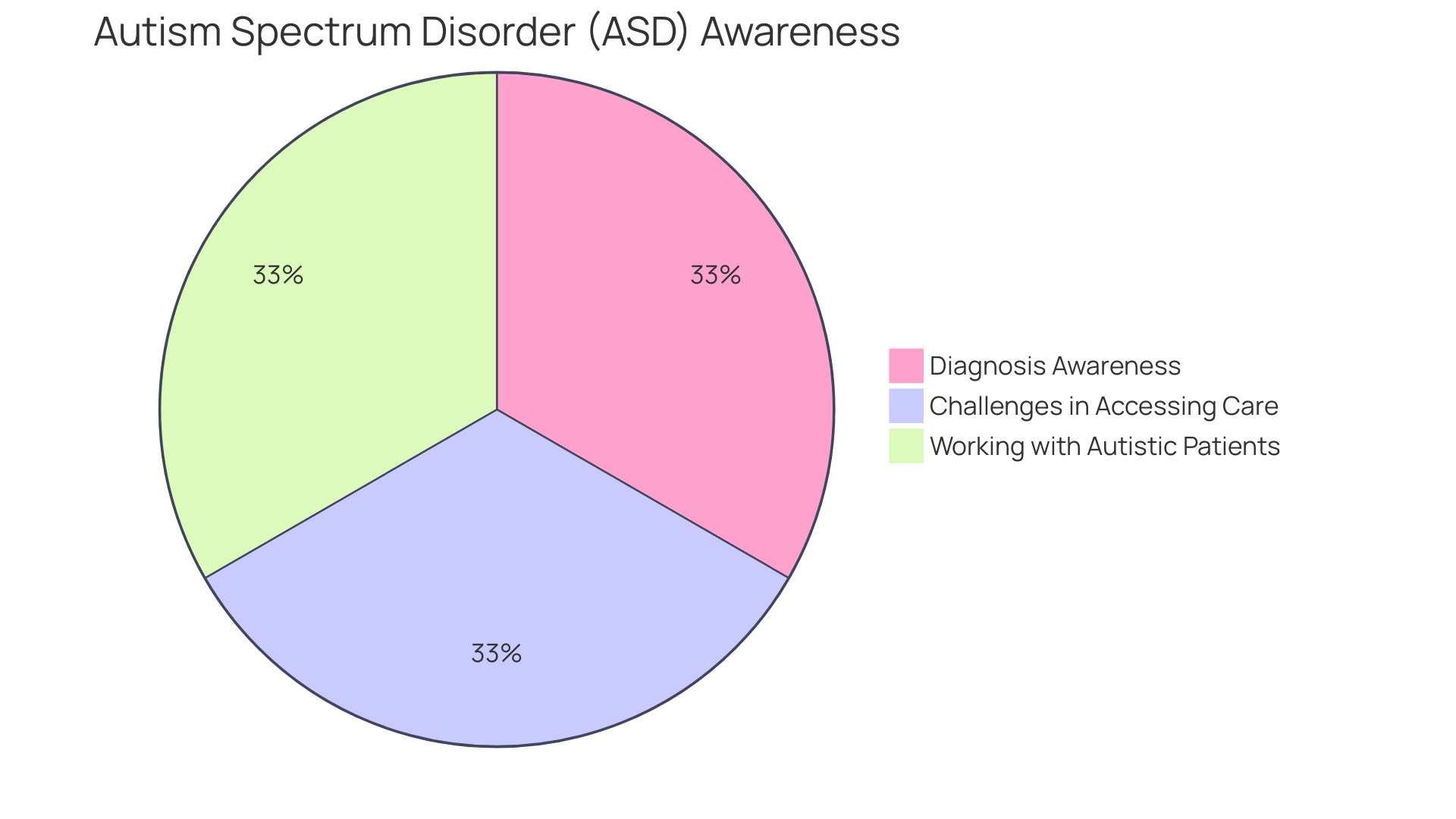
Challenges Faced by Doctors with Asperger's
Physicians with Asperger's Syndrome bring unique strengths to the medical field, including extraordinary attention to detail and strong memory skills. These attributes can be invaluable, particularly in a profession that demands precision and a comprehensive understanding of complex information. However, these professionals may encounter challenges due to the social aspects of the workplace, such as interpreting non-verbal cues and navigating interpersonal dynamics with patients and colleagues.
Despite potential hurdles, the narrative is changing. Initiatives like the Adult Autism Health Resources project underscore the need for a healthcare system that is inclusive of neurodiverse adults, including those with Asperger's. Harvard Medical School's focus on educating clinicians and caregivers about autism care for adults is a testament to the evolving understanding of neurodiversity in the workplace.
Contributions from individuals like Piers, whose creative and persevering spirit led to impactful research on autism, demonstrate the exceptional capabilities of people with Asperger's in the medical field. As Dr. Aspell from ARU praises Piers' achievements, it's clear that neurodiverse individuals can excel in medicine.
The discourse on underrepresentation in medicine is also shifting. A psychiatric resident physician with a neuromuscular disorder shares his experiences, highlighting the need for greater representation and understanding within the physician workforce. This call for inclusion aligns with the broader move towards embracing diversity in all its forms.
In light of these insights, it becomes evident that while doctors with Asperger's may face distinct challenges, they also possess unique strengths that can significantly enhance the medical profession. The journey toward a more inclusive healthcare environment is ongoing, and stories of success and advocacy for change are paving the way for a more diverse and capable medical workforce.
Case Study: Successful Strategies for Doctors with Asperger's
Achieving success in the medical profession as a doctor with Asperger's Syndrome requires a blend of technical expertise and personalized strategies. For instance, a doctor might excel in patient care by leveraging their exceptional attention to detail and strong memory skills—traits often found in individuals with ASD. These abilities are invaluable in the medical field where precision and a robust knowledge base are paramount.
Emphasizing the importance of soft skills alongside medical knowledge, a doctor with Asperger's can improve patient interactions by focusing on empathy, teamwork, and clear communication. Conveying the correct information at the right time, from diagnosis through to treatment and follow-up, is essential for patient recovery and reassurance.
Continuing Medical Education (CME) programs provide an excellent opportunity for doctors to stay abreast of the latest developments in their field through conferences, workshops, and seminars. These organized learning experiences are instrumental in acquiring new knowledge and skills. Doctors might also explore online courses and certifications in areas such as anesthesia, cardiology, or radiology to expand their expertise.
For example, learning about the therapeutic uses of ketamine, originally a sedative but now being explored for its potential benefits in treating mental health conditions, could diversify treatment options for patients. Simulation exercises, like emergency response drills and mock surgeries, offer a hands-on approach for mastering new techniques in a risk-free setting.
Dr. Aspell's acknowledgment of Piers' innovative and persistent approach to his research highlights the profound impact individuals with Asperger's can have on the medical community. Similarly, initiatives like the Adult Autism Health Resources project reflect a growing recognition of the need for quality medical care for autistic adults, emphasizing that their well-being is as important as that for neurotypical individuals.
In the dynamic and demanding environment of healthcare, doctors with Asperger's can thrive by continually adapting, learning, and applying their unique strengths to contribute meaningfully to the medical field.
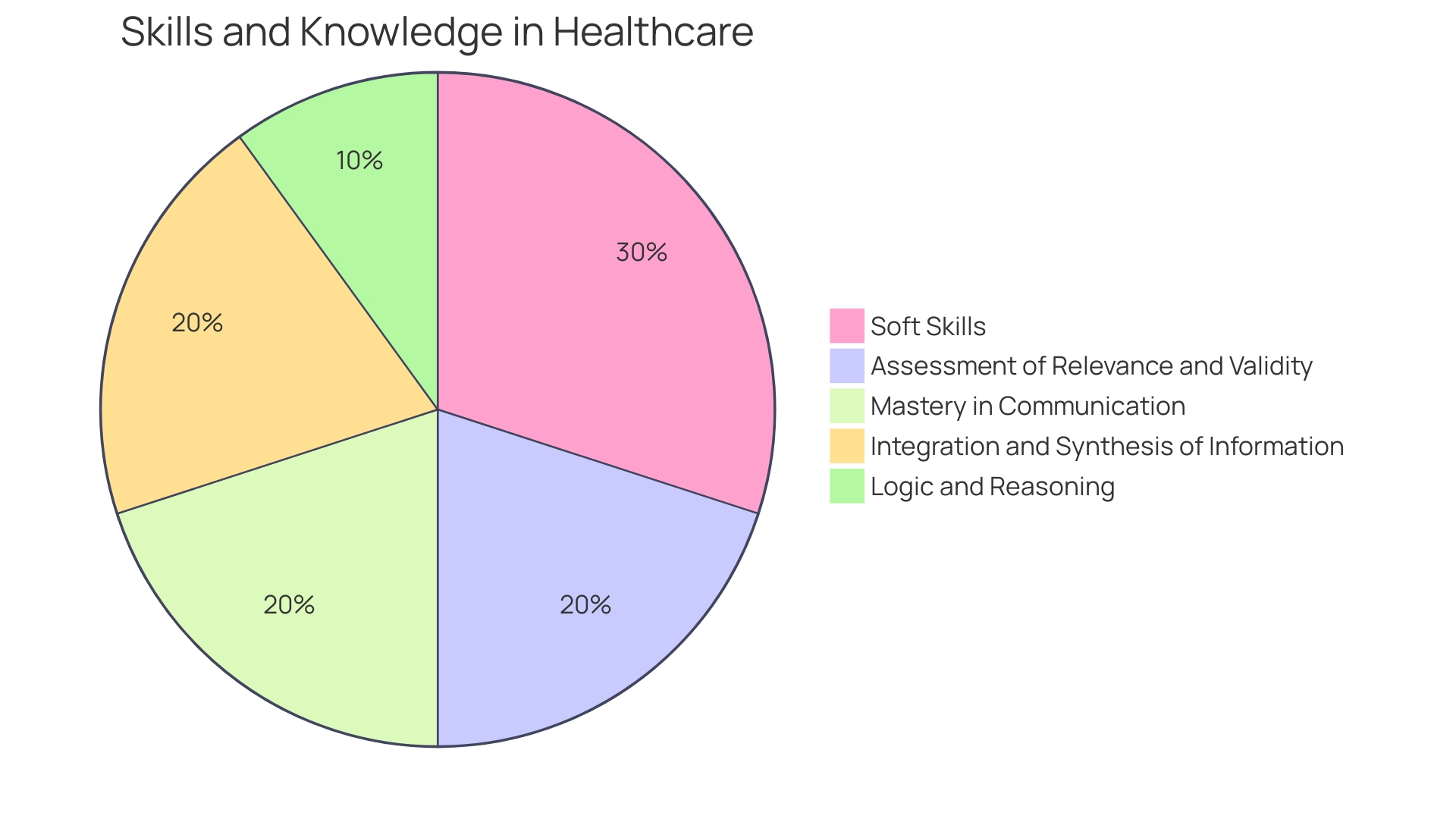
Content Marketing Strategies for Support
To effectively support doctors with Asperger's syndrome, content marketing strategies should be carefully crafted to raise awareness, offer support, and foster an inclusive environment. Initiating these efforts begins with pinpointing specific marketing objectives, such as enhancing organic search rankings or creating engaging service line landing pages designed to draw in more patients. The content itself is crucial, with condition libraries and service line capabilities descriptions being among the most impactful types in healthcare communication.
By leveraging industry-specific knowledge from subject matter experts through in-depth interviews, marketers can generate authoritative content that resonates with healthcare stakeholders and addresses their unique, time-sensitive concerns.
The challenge lies in distilling expert knowledge into ongoing, usable content. This is where a programmable content strategy comes into play, enabling the swift production of tailored content. A precise, methodical approach is recommended, starting with focused goals and gradually testing and refining content to maximize its impact.
Such a strategy is particularly relevant given the dynamic nature of digital marketing, where artificial intelligence tools, employed by digital marketing experts, are revolutionizing real-time engagement with audiences. These AI-driven tools analyze vast amounts of data to predict customer behavior, allowing businesses to maintain a competitive edge without incurring excessive costs.
In the context of workplace communication, it's important to acknowledge the unique challenges neurodivergent individuals face. With 1 in 36 children and an estimated 2.2% of adults diagnosed with autism in the United States, societal and workplace inclusivity are paramount. The Autism Welcoming Initiative exemplifies efforts to train businesses to be more accessible to individuals with autism, illustrating a commitment to accommodating neurodiversity.
This aligns with the Americans with Disabilities Act's mandate for reasonable accommodations, aiming to provide equal treatment and opportunities for those with disabilities in the workforce.
By integrating these strategic content marketing approaches and societal initiatives, we can create an environment that not only supports doctors with Asperger's syndrome but also upholds the principles of inclusivity and understanding in the healthcare industry and beyond.
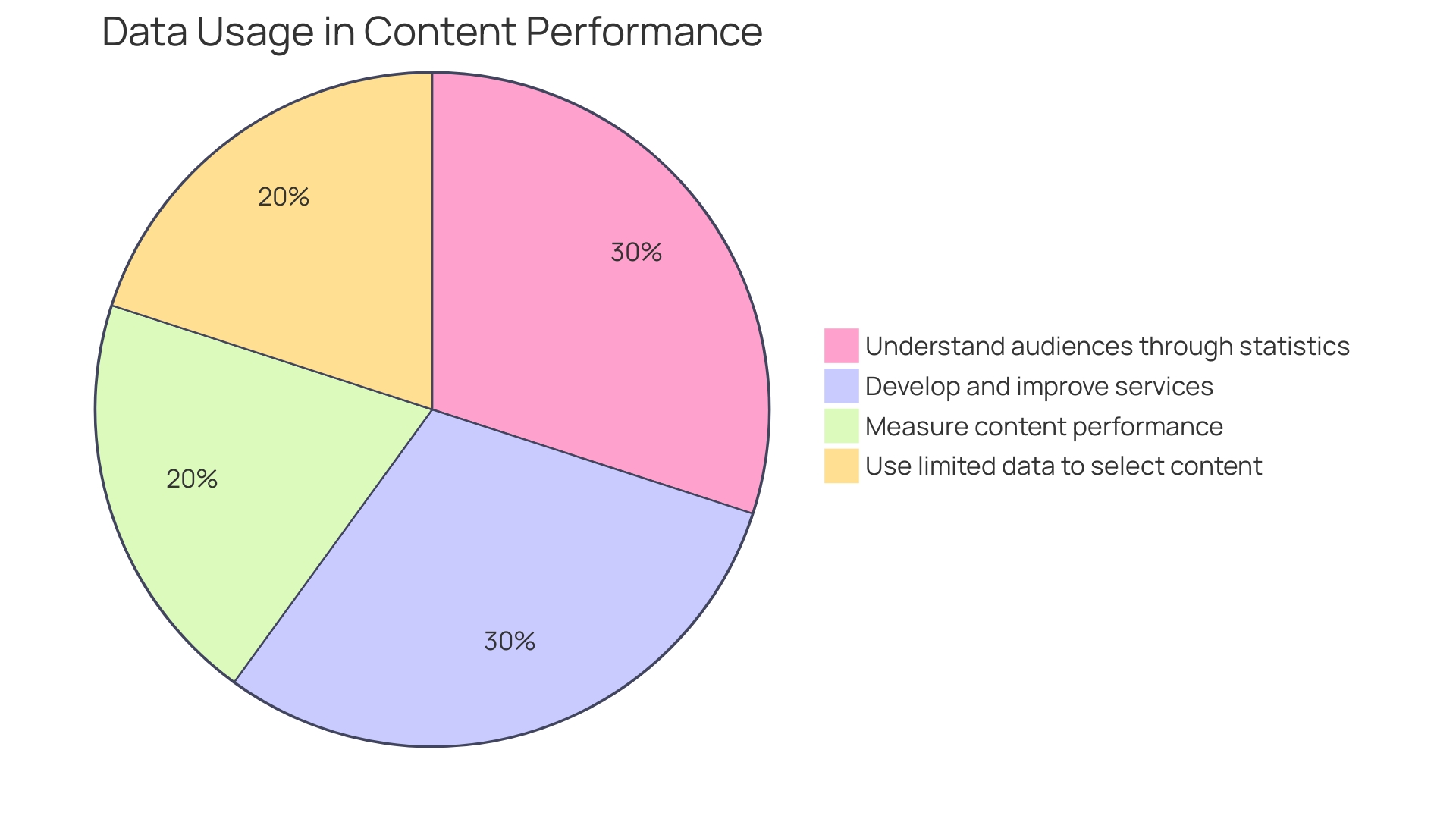
Leveraging Social Media for Awareness and Support
Social media's influence on the medical community is undeniable, with its ability to facilitate instant information exchange and foster professional connections. For doctors with Asperger's Syndrome, these platforms are invaluable, offering avenues to highlight their unique strengths, such as meticulous attention to detail and strong memory skills—traits that are particularly advantageous in the medical field.
With 5.04 billion social media users globally, the potential for knowledge sharing and community building is immense. Professionals can leverage these platforms to share insights and contribute to a deeper understanding of Asperger's Syndrome. Social media enables the dissemination of educational materials, encouraging a supportive network that reinforces positive perceptions and combats stigma associated with neurodiversity.
The Adult Autism Health Resources initiative at Massachusetts General Hospital is a testament to the importance of raising awareness about the ongoing medical care needs of adults with autism. Social media campaigns can draw attention to such initiatives, amplifying their reach and impact.
However, it's crucial to navigate social media mindfully. Algorithms can create echo chambers, emphasizing the need for diverse perspectives. This is particularly vital in addressing mental health, where being exposed to a single narrative could reinforce misconceptions.
As such, online communities should be curated thoughtfully, ensuring that they offer a balanced view that aids, rather than hinders, understanding and support for health professionals with Asperger's.
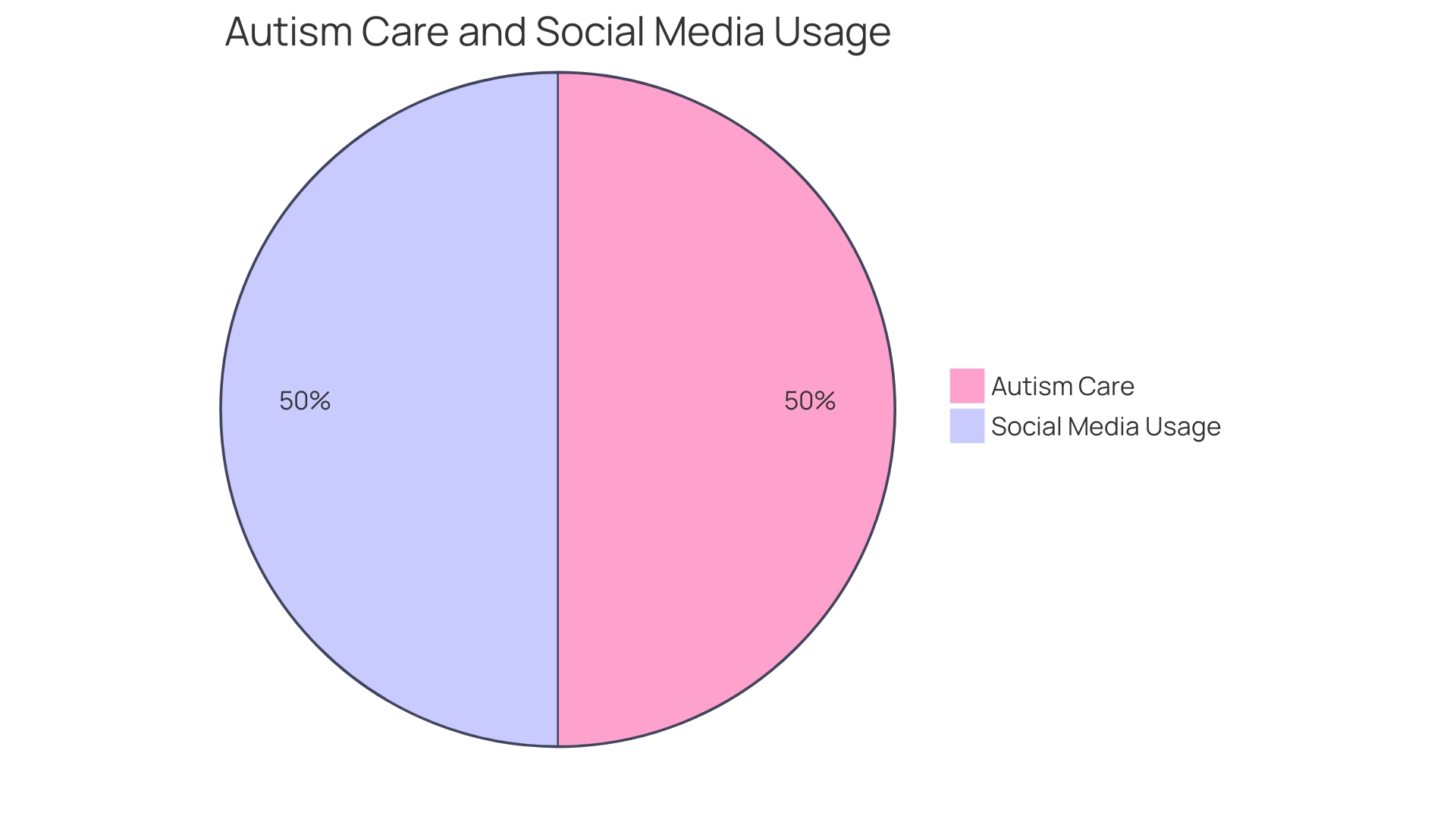
Creating Engaging and Informative Content
Supporting doctors with Asperger's Syndrome involves creating accessible content that addresses their unique challenges within the medical field. This includes developing articles, videos, and podcasts that not only shed light on the difficulties these professionals face but also provide actionable strategies to foster their careers. By focusing on condition libraries and service line capabilities, the content can align with healthcare marketing goals such as improving organic search rankings and attracting more patients.
Engaging titles and first-person narratives can captivate readers, offering personal insights into the experiences of doctors with Asperger's.
There is a compelling need for such resources, as medical professionals with Asperger's often excel in their technical expertise but may require additional support with soft skills like communication and empathy. As Tsheringla, a child and adolescent psychiatry resident, highlights through her experiences with her sister's profound ASD, doctors' understanding of such conditions is paramount in providing compassionate care. This understanding extends to fellow doctors with ASD, ensuring that their working environment is inclusive and supportive.
Statistics emphasize the importance of supporting medical professionals, with doctors facing a higher risk of becoming disabled due to their work environment. Disability insurance is crucial, as it offers a financial safety net, enabling doctors to protect their income and continue their practice despite potential disabilities. Creating content that empowers doctors with Asperger's not only contributes to their individual success but also promotes a healthcare environment that values diversity and inclusion, ultimately benefiting the entire medical community.
Utilizing Email Newsletters and User-Generated Content
Harnessing the power of generative AI, healthcare organizations have the opportunity to transform the traditional ways of sharing medical information. For doctors with Asperger's Syndrome, who often exhibit incredible attention to detail and memory skills, receiving nuanced and detailed medical visit notes is critical. By leveraging AI to assist in the creation of these notes, medical professionals can avoid the burnout associated with administrative tasks—focusing more on patient care and less on paperwork.
The implementation of AI in medical documentation not only benefits doctors but also parents, who frequently encounter delays and misunderstandings due to medical jargon in visit summaries. This technology offers a more user-friendly approach, simplifying the information exchange process. By incorporating personal stories and testimonials from doctors with Asperger's into email newsletters, healthcare organizations can inspire and foster a sense of community among those who share similar experiences.
Such user-generated content resonates deeply, providing both support and a platform for shared learning.
This inclusive approach aligns with the vision of a healthier world through shared knowledge, as illustrated by programs like Mamás del Río, which adapt to new clinical settings post-pandemic. As we continue to evolve in the digital age, the thoughtful integration of technology and human experiences in healthcare communication holds the promise of a more connected and supported medical community.
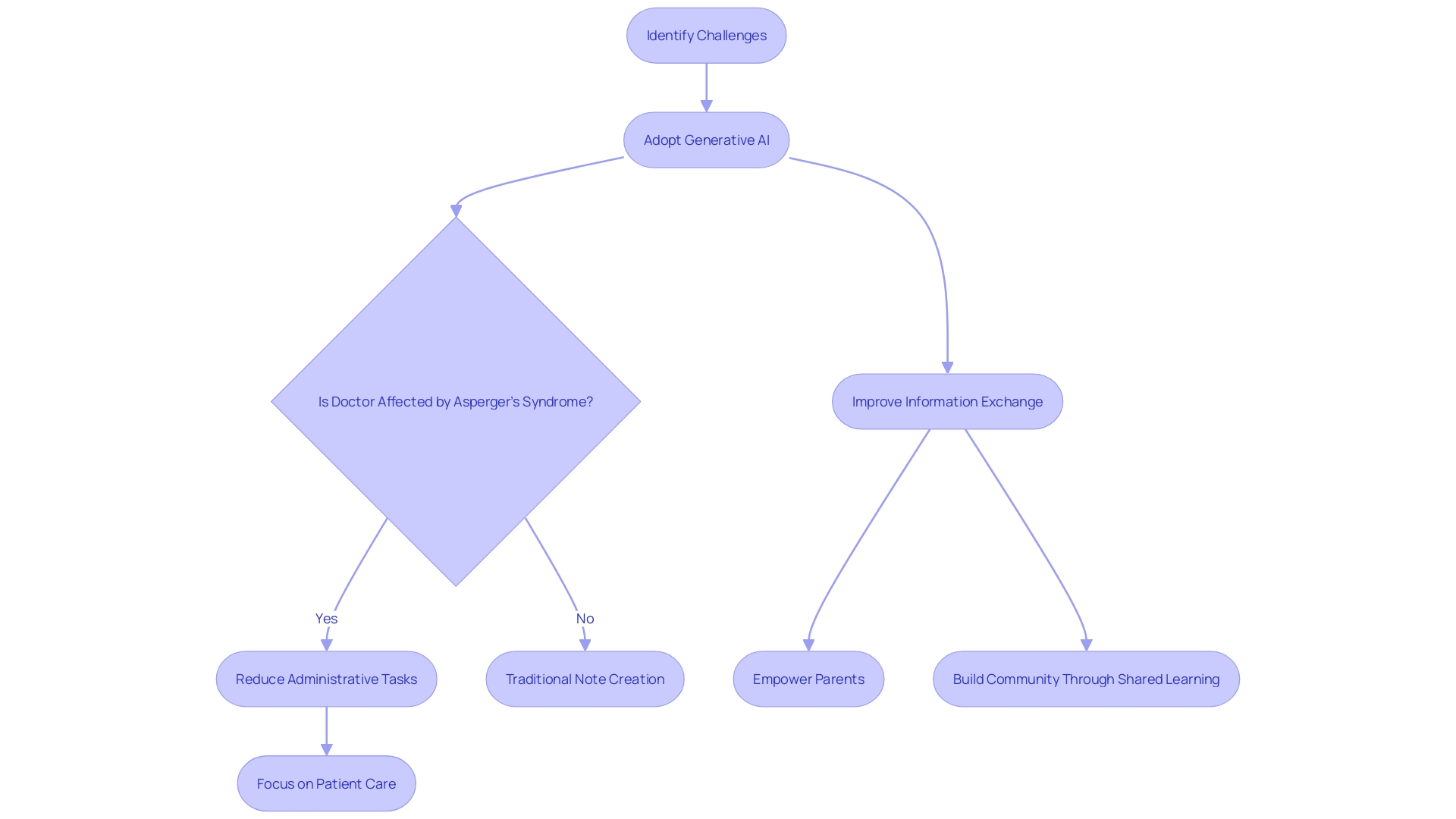
Video Content and Visual Aids
Leveraging the power of visual communication, especially videos, is making a significant impact in medical education and patient care. This approach is particularly helpful for doctors with Asperger's Syndrome, as it caters to their strengths in visual information processing. By utilizing videos to break down intricate medical procedures and concepts, doctors are able to grasp and retain complex information more effectively.
This visual format transcends language barriers and simplifies the learning process, fostering a deeper understanding of the subject matter.
Visual aids, such as infographics and diagrams, serve as another resourceful tool to aid these doctors in organizing and digesting medical data. The clarity and structure provided by such aids promote better comprehension and can enhance the quality of care they provide. Furthermore, these tools are not only beneficial for doctors but also for patients, particularly those with varying levels of health literacy.
Research has revealed that a majority of the population are visual learners, with visual aids increasing patient satisfaction and recall of medical information.
In the context of healthcare, where effective communication is crucial, adopting visual tools can bridge the gap between complex medical knowledge and practical, patient-centered application. This method of teaching and learning is not just an alternative but a necessity in the diverse landscape of medical education and patient interaction.
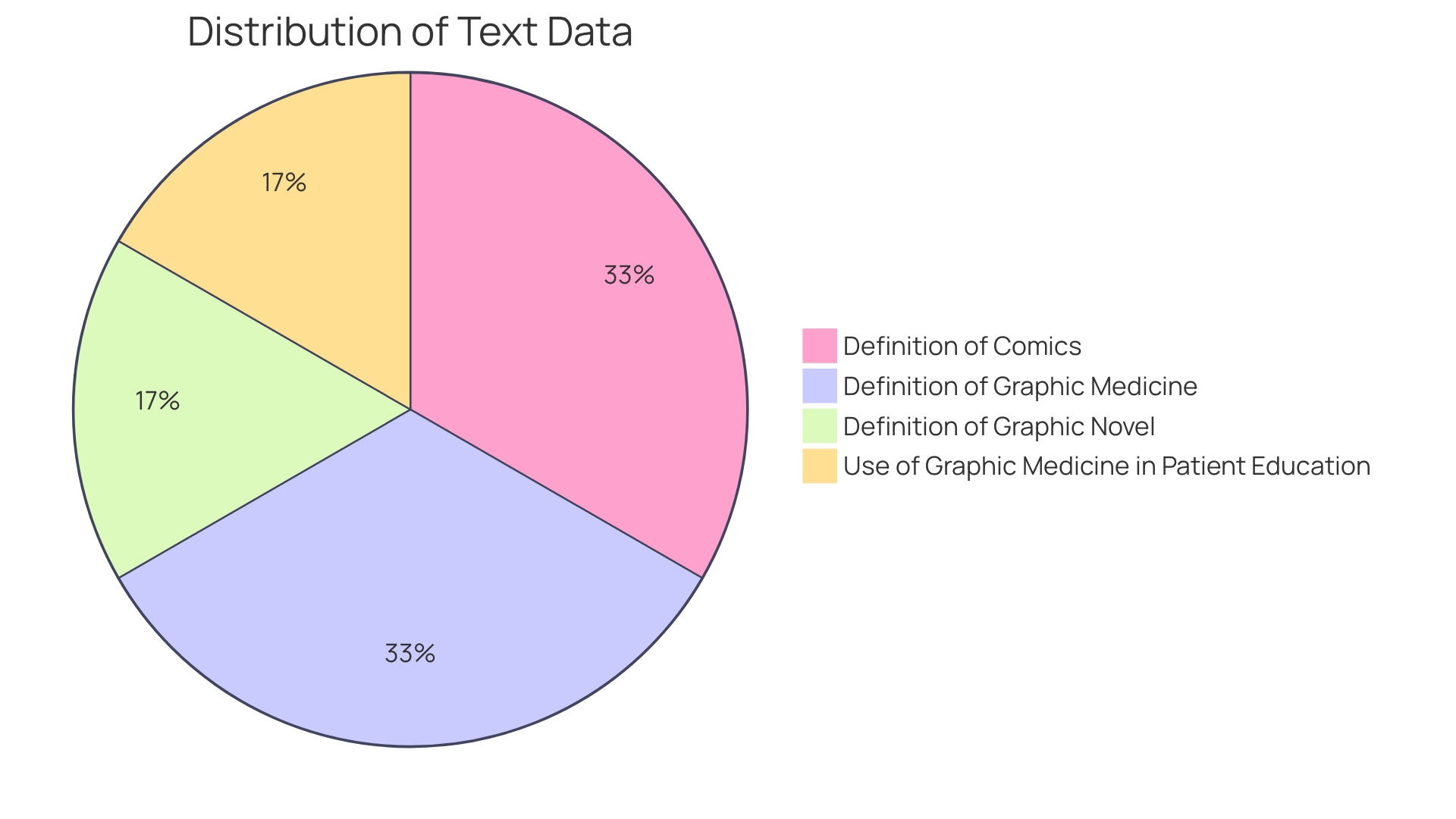
Building Trust and Credibility Through Content
In the realm of healthcare, practitioners with Asperger's Syndrome offer unique strengths such as exceptional attention to detail and strong memory skills, which are vital in medical professions that demand precision and a robust retention of factual information. To support these individuals effectively, it is crucial to provide resources that are not only accurate but also resonate with their specific needs. For example, Dr. Aspell's successful supervision of a PhD student with Asperger's, resulting in impactful autism research, highlights the importance of recognizing and nurturing the creative and analytical capabilities of those on the spectrum.
The concept of neurodiversity, introduced by sociologist Judith Singer, emphasizes the inherent value in the diverse neurological make-up of individuals, including those with Asperger's. This perspective acknowledges that while some aspects of neurodiversity may pose challenges, others can lead to extraordinary capabilities, sometimes referred to as the 'autism horseshoe,' suggesting a range from intellectual disabilities to exceptional brilliance.
To facilitate trust and confidence, healthcare organizations must become reliable sources of knowledge, which can be established through collaborations with respected medical professionals and the dissemination of well-researched content. According to studies, such as the one conducted by Mainous and colleagues, trust in medical experts is paramount for individuals to accept and use health information. This trust can be further enhanced by personalizing communication, as demonstrated by strategies like segmenting email lists to address the unique contexts of healthcare professionals, including those with Asperger's Syndrome.
Moreover, the transition towards non-eponymous naming in medical literature, as advocated by Pediatric Research, reflects a broader commitment to ethical and inclusive practices. This change not only addresses the often unknown ethical backgrounds associated with eponymous names but also supports the development of a positive and stable autistic identity, which is especially significant during adolescence and early adulthood, as per the findings in identity development research.
In essence, by acknowledging the strengths, fostering psychological safety, and providing personalized and credible information, healthcare organizations can empower practitioners with Asperger's Syndrome, enabling them to thrive professionally and personally.
Appendix: Resources for Further Support
As we continue to recognize the diverse needs within the healthcare profession, it's crucial to support doctors with Asperger's Syndrome by providing them with tailored resources. These individuals contribute uniquely to the medical field and, with the right support, can excel in their careers. Support groups, online communities, educational materials, and professional development opportunities are essential for these doctors to thrive.
Initiatives like the Adult Autism Health Resources at Harvard Medical School, led by experts such as Christopher McDougle, MD, highlight the importance of acknowledging and addressing the medical needs of adults with autism, including those in healthcare professions. Dr. McDougle's work reminds us that after leaving the structured school environment, adults with autism should continue to receive guidance and care to navigate the professional world successfully. Additionally, research like Piers' thesis at Anglia Ruskin University, supervised by Dr. Aspell, shows the importance of understanding the nuances of autism, such as the relationship between behavioral differences and alexithymia, rather than solely focusing on the autism diagnosis.
This kind of research is instrumental in creating resources that are more attuned to the actual needs of autistic individuals. In line with the collaborative efforts within the industry, as seen with software development for mental health services, these resources for doctors with Asperger's are designed to meet their specific professional and personal growth needs. The commitment to empower every healthcare professional, regardless of neurodiversity, reflects a broader move towards inclusive and supportive workplaces where each individual's well-being is a priority.
Conclusion
Doctors with Asperger's Syndrome bring valuable strengths to the medical profession, such as attention to detail and strong memory skills. While they may face challenges in social interactions, the narrative is changing with a growing understanding of neurodiversity.
To succeed, doctors with Asperger's can employ personalized strategies that leverage their strengths and focus on soft skills like empathy and clear communication. Continuing Medical Education programs and online courses offer opportunities for ongoing learning and expanding expertise.
Supporting doctors with Asperger's requires carefully crafted content marketing strategies that raise awareness and foster inclusivity. Social media platforms can amplify awareness campaigns and create a supportive network.
Visual aids, like videos and infographics, cater to the strengths of doctors with Asperger's in visual information processing, enhancing comprehension and patient satisfaction.
Building trust and credibility through accurate and personalized resources is essential. Collaboration with respected medical professionals and personalized communication enhances trust and confidence.
Tailored resources, such as support groups and professional development opportunities, are crucial for further support. Initiatives like the Adult Autism Health Resources highlight the importance of addressing the medical needs of adults with autism.
By empowering and supporting doctors with Asperger's, we move towards more inclusive and supportive workplaces that prioritize the well-being of all individuals in the medical community.




